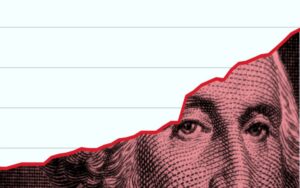UK borrowing hits highest level since Covid pandemic amid growing financial pressure on government

Britain recorded its highest borrowing levels since the Covid pandemic during the first half of the current fiscal year.
This comes as the British government faces increasing pressure ahead of the new budget announcement on November 26, amid expectations of new tax increases and public spending curbs.
According to data from the UK’s Office for National Statistics, total government borrowing between April and September reached about 99.8 billion pounds ($133.9 billion), a 13% increase compared to the same period last year and exceeding official estimates by about 7.2 billion pounds ($9.64 billion).
This is the second-highest level of borrowing since records began in 1993, after the jump during the Coronavirus pandemic in 2020.
In September alone, borrowing rose to £20.2 billion ($27.05 billion), driven by higher debt servicing costs and public service spending, despite higher tax revenues, particularly from employer social security taxes.
The monthly deficit was slightly lower than economists’ median forecast of £20.8 billion ($27.85 billion).
Despite the worsening deficit, Finance Minister Rachel Reeves benefited from a review of previous debt data, with borrowing estimates for the first five months of the year cut by £4.2 billion ($5.62 billion).
Reeves confirmed that she is considering options including raising taxes and cutting spending in her upcoming budget, with the aim of strengthening the government’s credibility in fiscal discipline.
She noted that she seeks to achieve a balance between spending and tax revenues by the end of the decade.
Data showed that the current budget recorded a deficit of 71.8 billion pounds ($96.14 billion) during the first six months of the fiscal year, a 17% increase year-on-year.
Last week, Reeves indicated her intention to expand the fiscal margin compared to the previous margin of 9.9 billion sterling pounds ($13.26 billion), which could require difficult financial decisions.
According to experts, Reeves is facing a complex challenge in achieving fiscal balance ahead of the autumn budget, amid slowing economic growth, rising borrowing costs, and increasing public spending pressures.
The British sterling pound saw little change against the US dollar or the Euro following the release of the borrowing data, reflecting market caution as it awaits the new fiscal measures to be included in the autumn budget.







